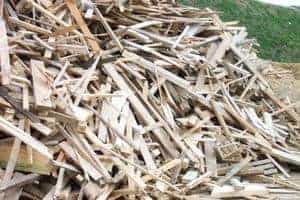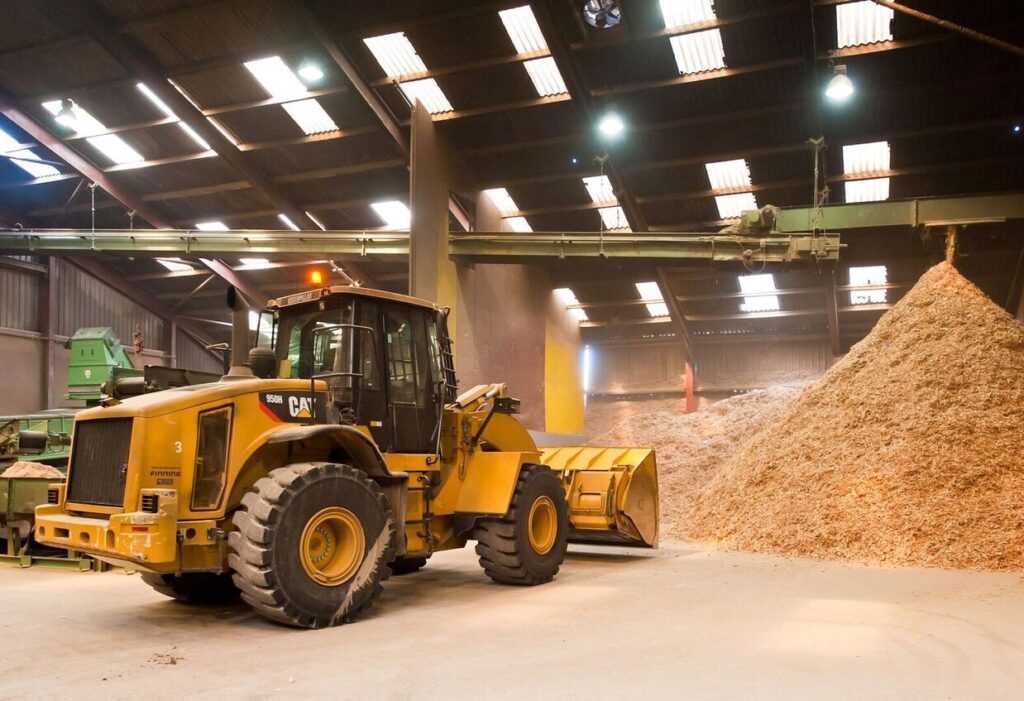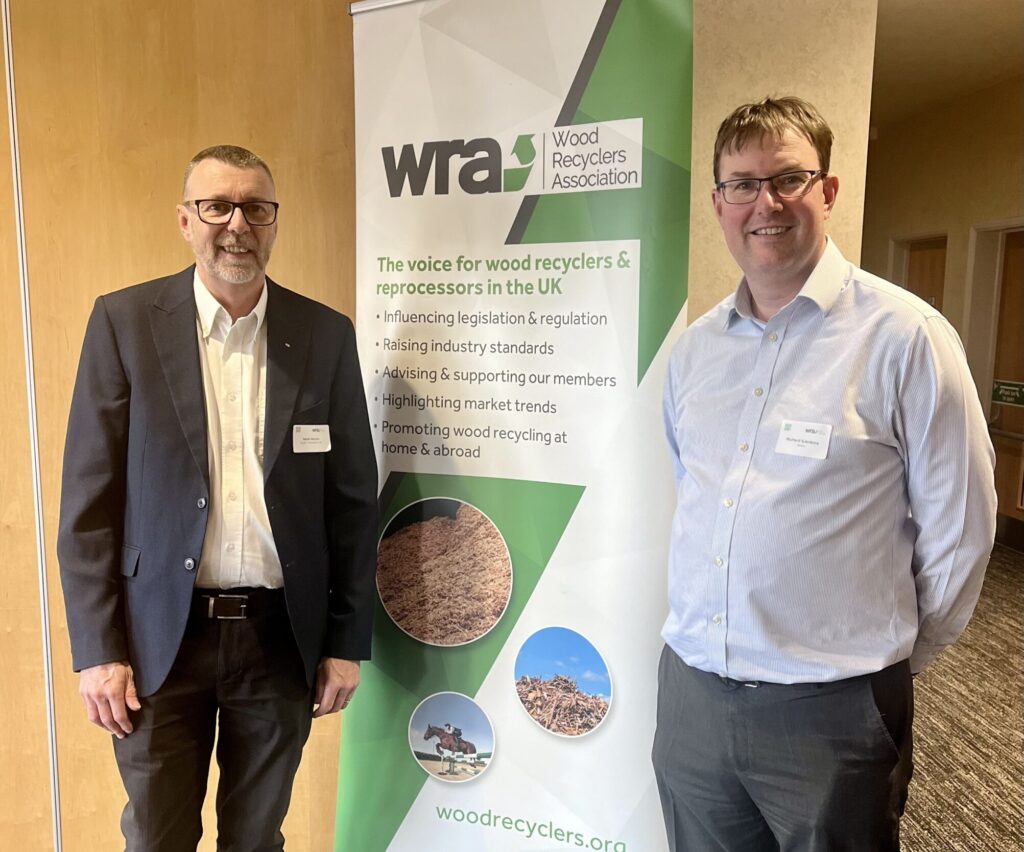The factory which describes itself as the UKs largest recycler of waste wood – normally recycles 1200 tonnes of waste wood a day. But, since the fire, it has temporarily stopped taking in material altogether (see letsrecycle.com story), creating a glut of material in the region.

To make matters worse, the UKs other major panelboard manufacturers have told letsrecycle.com that they are not capable of taking in any more waste wood and are in fact being stricter on quality control and sometimes paying less for what they do take.
Kronospan, EGGER and Norbord all say they are fully stocked already and could not find a use for the extra material.
Kronospan is located around 50 miles from the Sonae plant in Wrexham, North Wales, and already uses 275-300,000 tonnes of waste wood a year, which makes up around 60% of its chipboard by weight.
Gavin Adkins, director of timber purchasing at Kronospan, said: There is certainly more wood availability. A lot of our suppliers are asking us to take more but we are very well stocked as it is.
Hear about all the latest developments in the wood recycling sector at the Wood Recyclers’ Association 10th Anniversary Conference and Awards, on November 1st. For more details and to book your place,click here.
If there is an excess of supply we can afford to be more critical. We have reduced prices due to the excess of material around.
EGGER
Mark Hayton, operations director for wood recycling business Timberpak, which is a subsidiary of panelboard manufacturer EGGER, said that EGGERs chipboard factories were also adequately stocked already and that it was considering reducing prices in some cases.
He said: EGGER doesnt have the ability to take in any more waste wood. We take in what we use. Hexham uses 230,000 tonnes per annum and our Scottish plant takes 110,000 tonnes per annum.
Mr Hayton said there was only a finite marketplace for the wood, particularly because the material is by its nature costly to transport.
The Sonae issue means there is no-where for this wood to go now, he said. The wood doesnt have another outlet. You can export it but that does not generate the same level of returns as the board mills.
Export
Another factor which is making things difficult is a seasonal drop-off in demand for waste wood from the biomass and export markets, which would ordinarily be able to absorb a lot of material.
This is detrimental to wood recyclers, particularly because the amount of waste wood sent to export grew six fold between 2009 and 2010 (see letsrecycle.com story).
The fall in demand is being felt most in the South of England, from where most waste wood is exported from the UK.
Rik Odendal, wood purchasing manager for chipboard manufacturer Norbord which uses 4-500,000 tonnes of waste wood at its panelboard at factories in Devon and Scotland – said that he had already noticed an abundance of wood in the market place even before Sonae closed.
There was a problem out there and Sonae made it bigger. For some reason there was a lot of wood available. Everyone is sitting with a lot of timber in their yards particularly because the amount of material being sent continent has gone down.
People are also not moving house due to the economic climate and spending more one upgrading their old houses, he explained.
Gate fees
Due to the general oversupply, panelboard manufacturers are now thought to be paying as little as 17 a tonne for recycled woodchip and in turn wood recyclers have been raising their gate fees and becoming more discerning about what material they take in.
One recycler told letsrecycle.com: At our site in Northern England the gate fees have gone up a couple of pounds due to Sonae.
This is likely to lead to more lower-grade material being sent for composting or even being disposed of in landfill.
The rise in wood recycling gate fees was confirmed by the Wood Recyclers Association which represents 78 companies in the wood recycling sector.
Peter Butt, WRA secretary, said: Gate fees are generally on the rise, and board mill prices are easing downwards. There are two reasons for this. Firstly, the normal seasonal trend. The demands from our principal markets panel board and biomass reduce in the summer, partly because of block holidays in the board mills but also because of reducing needs of continental biomass plants. This inevitably causes a levelling or a rise – in gate fees.
The recent fire at Sonae has alsocreated a further blockage in the system, to the tune of several thousand tonnes a month. This has put increased upward pressure on gate fees and led some board mills to trim their input prices.






Subscribe for free